
THE SHAREHOLDERS OF KMG



ABOUT THE COMPANY
Joint Stock Company National Company KazMunayGas is a vertically-integrated oil and gas company engaged in the full production cycle from hydrocarbon exploration and production, transportation and processing to the provision of specialised services.

KMG was established in accordance with Decree No. 811 of the President of the Republic of Kazakhstan (RoK) dated 20 February 2002 “On measures to further ensure the interests of the state in the oil and gas sector of the country’s economy” and Decree No. 248 of the Government of the Republic of Kazakhstan dated 25 February 2002 “On measures to implement Decree No. 811 of the President of the Republic of Kazakhstan dated 20 February 2002.” KMG is the successor to the closed joint-stock companies National Oil and Gas Company “Kazakhoil”, National Company “Oil and Gas Transportation” and Joint-Stock Company “KazMunayGas Refining & Marketing.” The founder of KMG is the Government of the Republic of Kazakhstan represented by the State Property and Privatization Committee of the Ministry of Finance of the Republic of Kazakhstan.
KMG Group consists of 107 companies in which fifty percent or more of the voting shares (participatory interests) are directly or indirectly owned by KMG, of which 55 companies are located in Kazakhstan. The remaining assets are located in such countries as Romania, Georgia, Switzerland, the Netherlands, Canada, Bulgaria, Moldova, Russia, Turkey, the United Kingdom, the United Arab Emirates, Canada, Gibraltar, the British Virgin Islands, the Marshall Islands, the Bahamas, Bermuda, the Isle of Man.
The central office is based in Astana. On June 23, 2022, KMG opened a Representative Office in Aktau.
The reduction of legal entities in the Group, also through the liquidation/reorganisation of sub-holdings, is carried out as part of the privatisation and divestment programs.
Decree No. 523 of the Government of the Republic of Kazakhstan dated 2 August 2022 amended and supplemented the Comprehensive Privatization Plan for 2021–2025.
The updated Comprehensive KMG Privatization Plan for 2021–2025 includes:
- 53 companies to realise;
- 94 companies are included in the KMG IPO perimeter;
- 6 companies in the KMG Group, the procedure and conditions for the realization and reorganization of which are established by the Management Board of Samruk-Kazyna JSC.
On November 11, 2022, the Board of Directors of KMG approved an updated List of Non–Strategic Assets of KMG (hereinafter referred to as the List of NSA), which provides for the withdrawal of 9 companies from 2022 to 2025.
For 2023, within the framework of the List of NSAs, it is planned to withdraw 4 companies, three of which by liquidation and one company for sale.
In 2022, the following changes were made in the structure of KMG ‘s assets:
- 3 companies liquidated;
- 1 company has been implemented;
- 4 companies acquired;
- 1 company has been transferred within the Fund group.
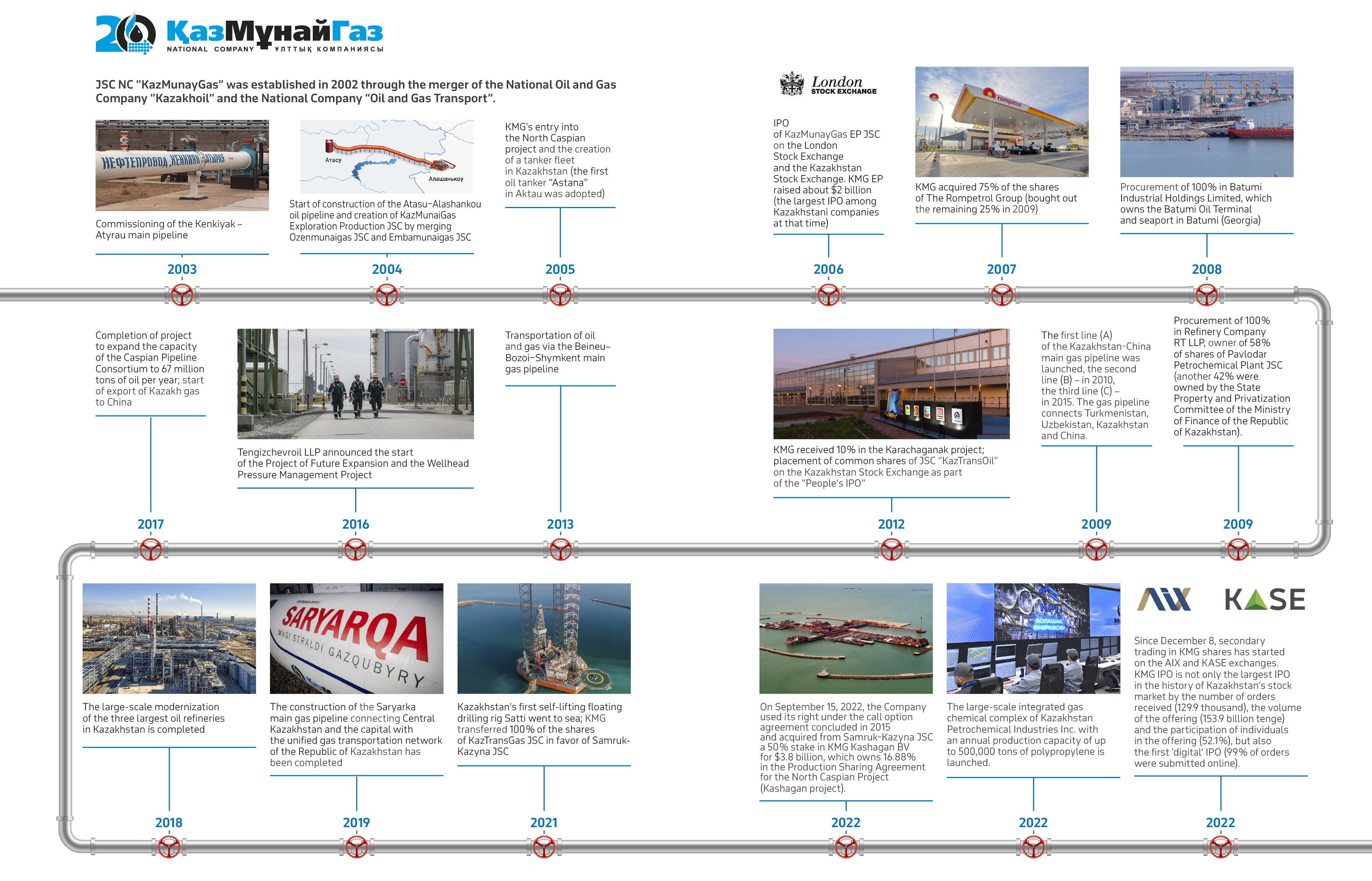



The centenary of the first-born of domestic oil production is a momentous occasion for all Kazakhstanis. The era of Kazakhstani oil began in 1899, when the first fountain of oil gushed from well No. 7 in the Karashungyl area of Zhylyoi district, Atyrau region.
The company dates back to 1922, when the development of Dossor and Makat fields coincided with the birth of Kazakhstan’s oil industry. It was then that the training of a galaxy of national personnel for the fledgling industry began: workers, engineers, managers.
The Embaneft Trust was established to manage geological surveys, exploration and production. It became the main centre of productive forces whose task was to put the inexhaustible natural resource hidden under the ground at the service of society and the state.
The oil workers of that time, despite all the hardships, endured all difficulties and successfully developed new fields and fulfilled production tasks of any complexity.
In the second half of the twentieth century, stability and scientific and technological progress came to the industry. While continuing to develop the fields in the Ural-Emba basin at a more technologically advanced level, the Emba oilmen simultaneously began to develop black gold deposits in Mangyshlak and the Aktobe region, and the Tengiz field was discovered.
Embamunaigas today represents innovative ideas and new technologies aimed at increasing production efficiency and reducing costs. The oil producer continues to be at the forefront of the industrial sector, making a significant contribution to the economy of independent Kazakhstan. Between 2012 and 2022, Embamunaigas JSC allocated more than 1 trillion and 472 billion tenge to pay taxes to the National Fund, national and local budgets, for the development of regional infrastructure about 5 billion 640 million tenge.
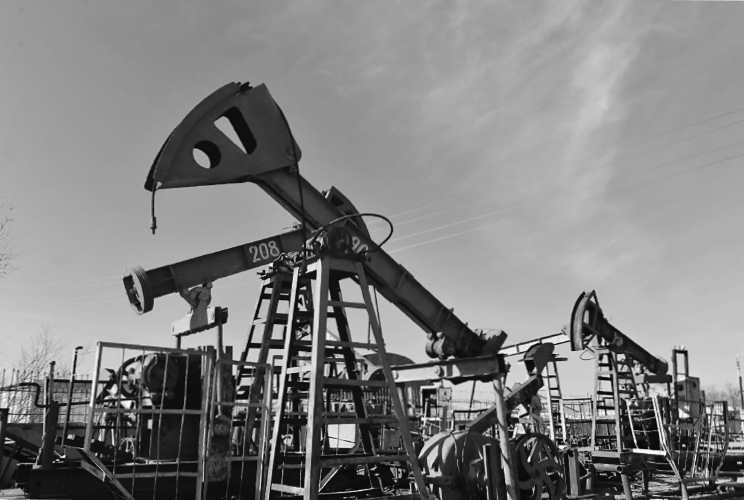

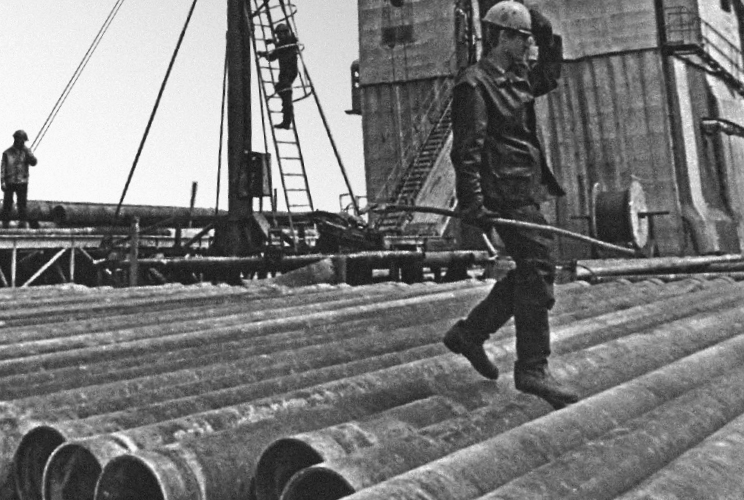

KazTransOil (KTO) JSC is a national oil transportation operator, which plays an important role in ensuring stable supplies of energy resources to the domestic market and strengthening the country’s export potential. The Company owns an extensive network of main oil pipelines with a total length of about 5.4 thousand km. Implementation of KTO projects is of strategic importance for energy security, serves as a reliable base for socio-economic development of the regions, and contributes to improving the quality of people’s lives. The Company was the first in the Republic of Kazakhstan to float its shares under the “People’s IPO” Program. In December 2012 the company’s common shares began trading on the secondary market on KASE.
KTO provides transportation of around 36 % of all oil produced in the country and more than 90 % of deliveries to domestic refineries. Over the years of the company existence the volume of oil transportation via the pipeline system has more than doubled.
For a quarter of century, the new Kenkiyak – Atyrau, Alibekmola – Kenkiyak, North Buzachi – Karazhanbas, Atasu – Alashankou oil pipelines were put into operation, Kenkiyak – Kumkol pipeline was built, the capacity of Atyrau – Samara oil pipeline was expanded, capacities of Aktau sea port and a number of railway discharge and loading terminals were expanded. The commissioning of the heating furnace at the Aman OPS made it possible to transport West Kazakhstan oil through the Kenkiyak-Atyrau oil pipeline in reverse mode in the volume of up to 6 million tons per year.
Since 2006 KTO has managed oil freight flows in 11 regions of Kazakhstan, having implemented the project on implementation of SCADA system of supervisory control and management of freight flows.
In 2008, KTO completed a deal to acquire a full stake in Batumi Industrial Holdings Limited. Thanks to this deal foreign oil transportation assets in the Black Sea were acquired for the first time.
Aware of its responsibility to its employees, KTO pursues weighted and balanced social policy aimed at business sustainability, social stability in the regions where it operates and employee satisfaction with working conditions. In order to improve social well-being and maintain a healthy lifestyle, as well as to organize leisure activities for rotational workers at the company’s production facilities, in 2022 KTO began implementing a project to build 12 multi-purpose sports grounds.
For over two decades, the company has been providing services of fresh water supply to consumers in Mangystau and Atyrau regions through one of the longest in the world main water pipeline Astrakhan – Mangyshlak.
In the context of constantly changing market conditions, the company’s priorities invariably remain occupational safety and health, environmental friendliness and business efficiency, based on the use of innovation and new technologies.
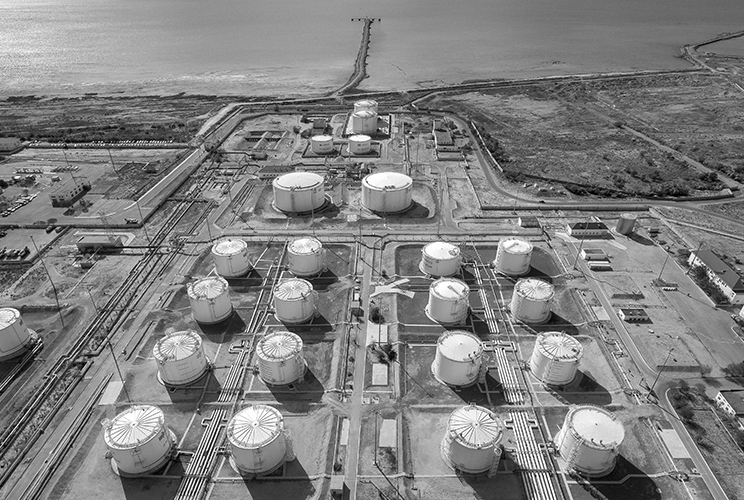
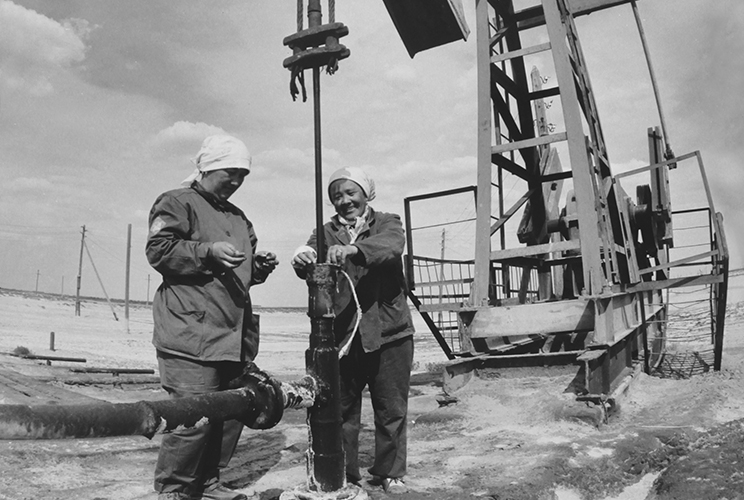
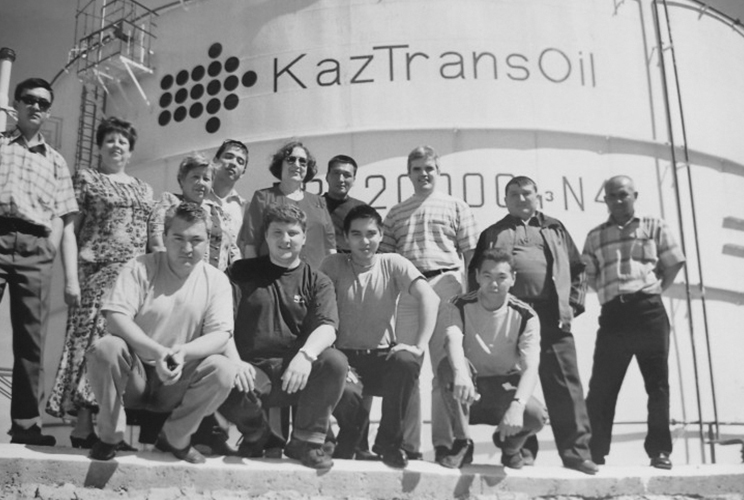
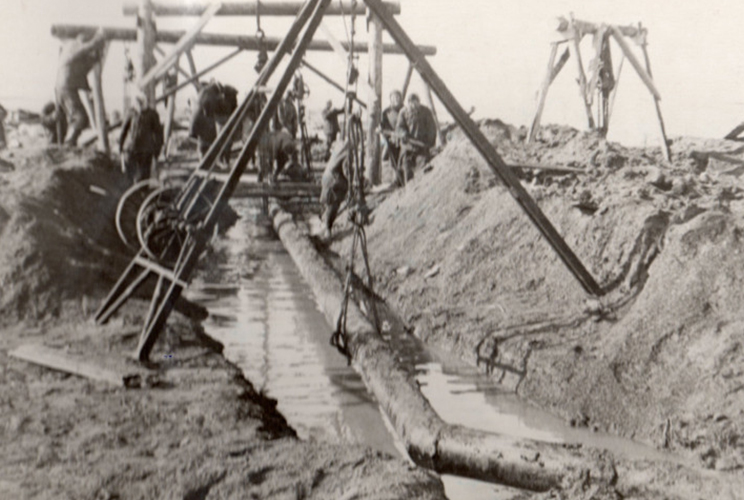
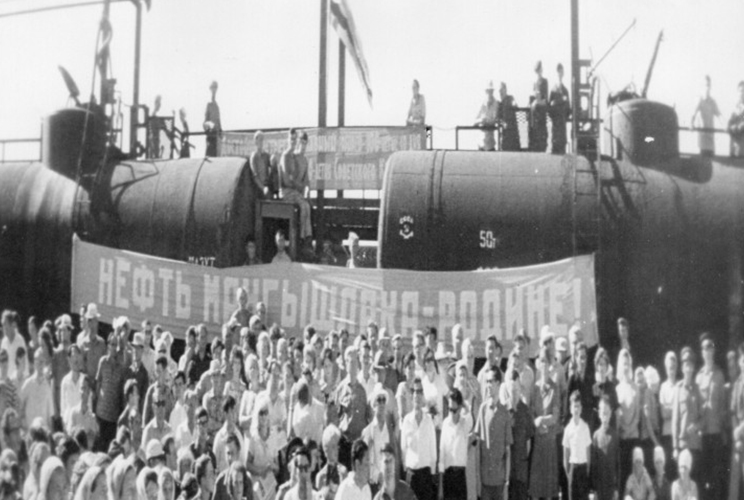

Production value chain

Export of petroleum products produced from KMG resources, broken down by share and directions of supply
|
Ser. No. |
Petroleum products |
Actual for 12 months of 2022 |
||
|
Volume, t |
Countries |
Share, % |
||
|
1 |
Fuel oil |
585,152 |
Europe |
100 % |
|
2 |
VGO |
105,467 |
Europe |
100 % |
|
3 |
High Purity Paraxylene |
33,763 |
China |
100 % |
|
4 |
Benzene |
1,684 |
Russia |
53 % |
|
1,498 |
Africa |
47 % |
||
|
5 |
Total coke |
18,066 |
China |
30 % |
|
42,978 |
Russia |
70 % |
||
|
6 |
Calcined coke |
780 |
China |
20 % |
|
3,170 |
Russia |
80 % |
||
|
7 |
Sulfur |
8,041 |
Europe |
59 % |
|
5,577 |
Africa |
41 % |
||
|
8 |
Gasoline Ai-92 K4 |
7,454 |
Europe |
100 % |
|
9 |
Heavy oil raw materials for the production of carbon black |
2,630 |
Russia |
100 % |
|
|
Total: |
816,259 |
|
|
KMG carries out the shipment of diesel fuel for field agricultural work, and also provides fuel oil to social and industrial facilities and institutions during the heating period.
Also, KMG, through KMG-Aero LLP and through exchange trading in 2022, carried out the sale of aviation fuel for local airports and airlines, as well as for commercial companies. The remaining volumes of petroleum products are sold to third-party buyers on the domestic market and for export.
In April 2022, KMG exported AI-92 gasoline (7 thousand tons). The 85 % decrease in exports of light petroleum products compared to 2021 is due to increased consumption in the domestic market of the Republic of Kazakhstan. In the structure of export supplies of petroleum products in 2022, the shipment of dark petroleum products to Europe prevailed. Volumes of diesel fuel, petrochemicals, coke, sulfur and butane were supplied to Europe, China, Nigeria, Russia, Uzbekistan and Tajikistan.
In 2022, KMG purchased oil from four 100 % subsidiaries of oil producing companies and from Kazakhoil Aktobe LLP (50 %) located in Western Kazakhstan for further processing at three refineries.
The total cost of oil and services for its processing amounted to 594 billion tenge.
In accordance with oil supply schedules endorsed by the Ministry of Energy of the Republic of Kazakhstan (“ME”), KMG began purchasing oil from Kazakhoil Aktobe LLP in November-December 2022 for processing at Pavlodar Petrochemical Plant LLP in Pavlodar (“PPCP”) and selling the oil products produced. In total, 58.5 thousand tons of Kazakhoil Aktobe LLP oil were processed at the PPCP by the end of 2022 by KMG.
Also, in the Republic of Kazakhstan, since May 2022, exchange trading in light petroleum products and bitumen has been resumed in the amount of 10 % of the total sales according to the plans for the supply of petroleum products endorsed by the Ministry of Energy.
Wholesale sale of KMG oil products produced in the Republic of Kazakhstan, thousand tons
|
Product |
2020 |
2021 |
2022 |
||||||||
|
local market |
export |
total |
local market |
export |
total |
local market |
export |
total |
|||
|
Gasoline |
647 |
163 |
810 |
1,195 |
0 |
1,195 |
1,333 |
7 |
1,340 |
||
|
Diesel fuel |
930 |
115 |
1,045 |
1,291 |
57 |
1,348 |
1,513 |
– |
1,513 |
||
|
Aviation fuel |
65 |
0 |
65 |
120 |
0 |
120 |
161 |
– |
161 |
||
|
Fuel oil |
211 |
402 |
613 |
241 |
542 |
783 |
265 |
588 |
853 |
||
|
Vacuum gas oil |
0 |
155 |
155 |
0 |
166 |
166 |
– |
105 |
105 |
||
|
Bitumen |
87 |
0 |
87 |
83 |
0 |
83 |
125 |
– |
125 |
||
|
Coke |
61 |
57 |
118 |
79 |
66 |
145 |
56 |
65 |
121 |
||
|
Sulfur |
6 |
5 |
11 |
3 |
17 |
20 |
5 |
14 |
19 |
||
|
Benzene |
0 |
19 |
19 |
0 |
4 |
4 |
– |
3 |
3 |
||
|
Paraxylene |
0 |
90 |
90 |
0 |
25 |
25 |
– |
34 |
34 |
||
|
Liquefied gas |
133 |
1 |
134 |
162 |
1 |
163 |
204 |
– |
204 |
||
|
Furnace fuel |
6 |
0 |
6 |
4 |
0 |
4 |
– |
– |
– |
||
|
Technological fuel |
0 |
0 |
0 |
382 |
0 |
382 |
408 |
– |
408 |
||
|
Other |
15 |
0 |
15 |
18 |
0 |
18 |
22 |
– |
22 |
||
|
Total |
2,161 |
1,007 |
3,167 |
3,577 |
877 |
4,454 |
4,091 |
816 |
4,908 |
||
In accordance with the Technical Regulation of the Customs Union 013/2011 “On requirements for motor and aviation gasoline, diesel and marine fuels, jet fuel and heating oil” (hereinafter – TR CU), the quality of produced fuel corresponds to environmental classes.
K4 AND K5 (SIMILAR TO EURO-4 AND EURO-5)
In accordance with the TR CU, the use of metal-containing additives (containing manganese, lead and iron) is not allowed in automobile gasoline and diesel fuel, the sulfur content is not more than 50 mg/kg, benzene is not more than 1 %.
The purpose of the modernization of the Refinery of the Republic of Kazakhstan is to improve the quality of manufactured motor fuels to the level of class K5 (an analogue of the Euro-5 standard).
At the same time, motor fuels, the main source of anthropogenic health impacts from vehicle exhaust, have decreased in the content of harmful substances:
- for sulfur by 10 times (the source of the formation of sulfur oxides);
- by aromatic substances by 1.5 times (the source of soot formation);
- for benzene by 5 times (the source of benzoperene formation is a carcinogen, belongs to the 1st hazard class).
ACHIEVEMENTS OF OIL REFINING IN 2022

